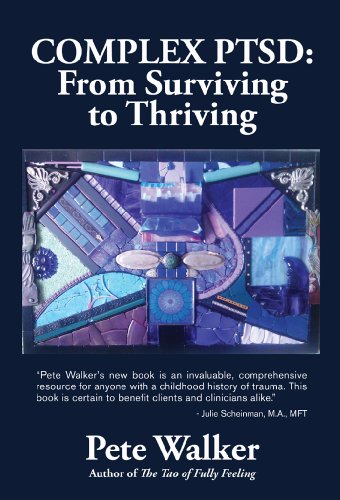

That’s why I wanted to create this quick resource – to serve as a jumping off point to how to better support trauma survivors. I’ve had time to read, engage in trauma-informed therapy, and connect with community around these issues, but my loved ones haven’t necessarily done that work.įriends and family of folks with C-PTSD don’t always have the same level of education and understanding that survivors do. While I am in a much better place with my trauma history, my loved ones – especially close partners who don’t share this kind of history – sometimes struggle to know how best to support me. My understanding of C-PTSD is largely influenced by the work of Pete Walker, a psychotherapist and survivor of complex trauma, whose words and affirmations helped bolster my own recovery (his book on complex trauma in childhood is a must-read). Many culturally competent clinicians and survivor s alike extend this framework to include the oppression that marginalized folks face, which can so often be traumatic. The flashbacks, the fear of abandonment, the hypervigilance, the distrust, the dissociation, the deep and abiding emotional pain that I could swear I was born with – with one diagnosis, al l of it seemed to make so much more sense.Ĭomplex trauma, while not officially listed in the DSM- 5, is still widely recognized by clinicians and survivors alike as a form of PTSD that occurs due to prolonged exposure to trauma – particularly interpersonal trauma, in which there was abuse and/or neglect that led to a significant imbalance of power.

When my therapist told me that he believed I was strugglin g with C-PTSD, countless pieces of the puzzle rapidly clicked into place for me. If I’ve learned anything o ver the years, it’s that sometimes our greatest healing can happen when we allow ourselves to love and be loved. Without another word, my partner put on Steven Universe – my go-to show, having watched every episode at least three or four times, its familiarity and charm never failing to calm me down.Īnd I breathed (slowly and deeply ) as I was lulled back into a sense of calm, my partner sitting quietly beside me. In the midst of an emotional flashback, my fears were disrupted by my partner’s tender assurances. But if this is too much, I’m more than happy to watch something else.” “Hey,” my partner said softly, pausing the film. I could barely breathe as I watched Quasimodo’s isolation in the belltower eerily mirrored the control and entrapment I’d experienced years before. Right from the start, seeing Quasimodo be the recipient of so much gaslighting – being told that the world wasn’t safe, that he would never be accepted or loved, that Frollo had only his best interest at heart – struck a jarring, but familiar ch ord with me. I was watching the Disney movie The Hunchback of Notre Dame when I suddenly went into shock.


 0 kommentar(er)
0 kommentar(er)
